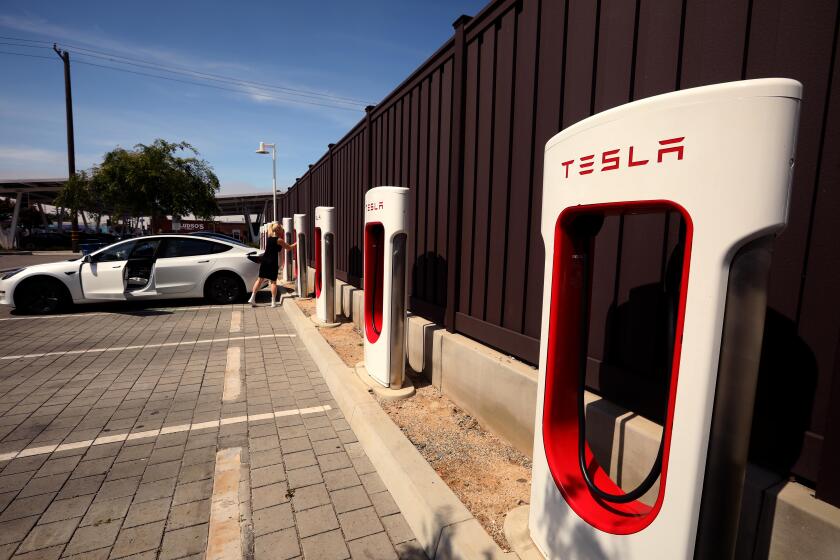Kicking Renault in the shin
This may come as something of a shock, but I am a liberal progressive environmental do-gooder. I know. Just keep breathing. You’ll come around.
I am also a car guy. As such, I am precisely the sort of prospect Renault means to cultivate in its film “Drive the Change” (Publicis), a two-minute corporate manifesto that declares the company’s intention to radically reinvent personal mobility around electric-vehicle technology. The film debuted at the Frankfurt auto show in September, and various “Drive the Change” campaign works -- multiplexed across TV, Web and social media formats -- will circulate globally as Renault ramps up to sell four new electric models by 2011. Meanwhile, Renault’s partner, Nissan, is on track to launch the Leaf EV in the U.S. by the end of this year, with an eventual sales goal of 150,000 annually.
Wow. Here in the land of the 900-cfm carburetor and 7-yard-long pickup? As a tree-hugging gear head, I should be delighted. Electric vehicles are fast, clean -- even if you account for the electricity from coal-fired power plants, the so-called long tailpipe -- and they represent the best means to efficiently convert multiple renewable energy pathways (wind, solar, biomass, hydro) to transportation.
So why do I want to kick Renault in the shin?
Because the “Drive the Change” campaign epitomizes, to the point of self-parody, all the worst characterizations the Reactionary Right holds dear about the Loony Left (of which I am, again, a card-carrying member): highhanded, holier-than-thou, gratingly preachy, salvationist, tone-deaf, collectivist. And in several imputations in this film, flat-out wrong.
I honor Renault/Nissan’s commitment to the environment, but the buttonholing sanctimony only makes me want to set an oil derrick on fire.
The spot begins with a misty dance through archival footage. “Has there ever been a finer creation than the automobile?” the narrator asks, in so plumy a British accent it’s practically marmalade. The soundtrack is the piano riff from Keane’s “Somewhere Only We Know,” which is pleasant enough at first but after two minutes sounds like “Chopsticks.”
After some banalities about the importance of the automobile, the narrator asks whether it “is still in tune with society today? Is it acceptable that some of us are able to drive while others barely have the means to get around?” Quick-cut to a man pulling a wooden cart down a road.
Wait, whoa, what? I’m as big a socialist as the next guy -- assuming the next guy is Bertrand Russell -- and even I choke on the suggestion that somehow, some way, Renault is going to cure the inequities of capitalism by selling electric cars. For one thing, they are going to be kind of pricey in the short term -- that’s why there’s not much of a market for them in China at the moment. For another, Renault and Nissan are vast, publicly traded corporations paying obeisance to stockholders. They will not be avengers of the global yeomanry, and to suggest so is to insult anyone’s intelligence.
In a similar vein, a sequence later in the piece shows a cool British player rolling up in a TVR (an English sports car) while some downtrodden soul looks on with envy. Voice-over: “Do you still have to be one of the lucky few to reap the benefits of progress?” Over a shot of hands picking up cellphones, the voice-over continues: “For us [Renault], true progress means everyone benefits at the same time.”
Renault seems to be suggesting that they are going to be handing out electric cars like frozen turkeys at food banks.
Most problematic is a series of references and images about man-made global warming: scenes of flooding, ice shelves melting, weather reports of monster storms marching across Europe, etc. “For us [Renault], global warming is an issue that goes beyond the emissions coming out of the tailpipe.”
Oy vey. Look, I know man-made climate change is a threat. You probably do too. But a significant segment of the population is invested in the notion that it’s a myth and a scam. Let them be. The goal of those marketing electric vehicles should be not to antagonize this population but to co-opt them. Tell them why the cars are good, selfish fun: they save money, are a hoot to drive and help stick it to Hugo Chavez. What color would you like yours, Sen. Inhofe?
Obviously, this commercial is scripted for the R.O.W. (the rest of the world), where its themes of social and economic equality, responsible environmentalism and the reality of man-made climate change are uncontroversial. In Europe, this spot would not strike anyone as politically correct, merely correct.
The danger is that Nissan might adopt some or part of this campaign, reflagging it to fly Nissan’s brand. This wouldn’t be an uncommon cost-saving measure in the global advertising business. But it would be a train wreck for Nissan and a huge setback for electric vehicles in this market.
My advice to Nissan’s marketers as they gear up to sell the Leaf EV in the U.S.: Emphasize convenience, emphasize speed, emphasize never having to pump gas in the cold rain again. Neither endorse nor dismiss climate change. Banish “Drive the Change” rhetoric from your collective consciences. Avoid at all cost situating this vital technology on the axis of right-left ideology. Embrace bipartisan self-interestedness.
Avoid preaching to the choir. Avoid preaching at all.



